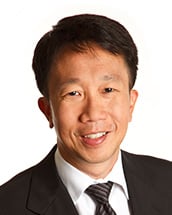In brief
In June 2024, the Bioethics Advisory Committee of Singapore (BAC) published a public consultation paper on the ethical, legal, and social issues arising from Human Nuclear Genome Editing (HNGE). The paper recognizes that, while developments in HNGE technologies have huge potential to improve human health, their use in research and clinical applications may have ethical, legal and social ramifications. In view of these issues, the paper seeks to obtain and discuss feedback, which will assist the BAC in developing its final recommendations to guide stakeholders in Singapore on the use of HNGE technologies in research and clinical applications.
Key takeaways
In the consultation paper, the BAC recommends that the research community, institution review boards (IRBs) and healthcare professionals consider the following substantive and governance principles in HNGE research and the clinical applications of HNGE:
- Substantive principles: respect for persons, solidarity, justice, proportionality and sustainability
- Governance principles: inclusivity, transparency and responsible stewardship of science
These principles are especially pertinent due to the unintended biological consequences of HNGE, such as mosaicism, off-target mutations and deletions, safety and long-term side effects of using HNGE technologies, and the procurement and use of human embryos and oocytes in HNGE research.
To balance these principles while fostering innovation, the BAC also makes certain recommendations on the governance of the research and clinical applications of HNGE, including that:
- Research institutions regularly review their policies and practices to manage risk while maximizing the potential benefits of HNGE research
- Regulatory bodies and funding agencies encourage and put in place robust guidelines/systems to understand, monitor, minimize, and mitigate the risks and their impacts on research subjects and clinical patients
- Governments and policymakers constantly review and revise the relevant legislation and regulations, with reference to societal values as scientific evidence develops
- Different approaches and tools will be introduced to enhance existing research governance frameworks for HNGE, such as self-regulation by professional bodies, development of guidelines, conducting of ethics and training courses, reinforcement of institutional practices, setting up of HNGE registries, and implementing whistle-blowing mechanisms.
In more detail
Background
Over the years, gene editing has witnessed a paradigm shift with the advent of techniques involving the clustered regularly interspaced short palindromic repeats-associated protein 9, zinc-finger nuclease and transcription activator-like effector nucleases. These technologies all functionally identify problematic DNA sequences and implement changes to them.
The BAC categorizes HNGE into three broad categories:
- Non-heritable gene editing, which refers to the editing of non-gamete cells (i.e. cells which are not responsible for the generation of reproductive cells). Changes to these cells by such gene editing cannot be passed down to the relevant individual’s offspring. Such gene editing has been used to treat, amongst others, severe combined immunodeficiency syndrome (SCID) and for research.
- Heritable gene editing, which refers to the editing of gametes (sperm or eggs), germline cells and embryos. Heritable gene editing is carried out with the aim of producing embryos with modified genomes and introducing them into a uterus such that a child with a modified genome would be born. Once the child is capable of producing his or her own gametes, these gametes will also have the same modified gene, which is then passed down to future offspring. Heritable gene editing can not only remove mutations in gametes to remove the possibility of inheriting diseases, but also confer resistances to diseases or enhance certain traits.
- Gene editing on germline cells or embryos for research, which may be used in reproductive medicine to treat mutations in germ cells in testes or ovaries, in germ cells to derive gametes for cellular development studies, or in respect of progenitor cells of gametes (without then implanting these into a human body).
The BAC recognizes that each classification of HNGE carries different risks.
A brief summary of the legislative and regulatory framework for HNGE is as follows:
- Non-heritable gene editing is generally allowed in Singapore. This is regulated by a patchwork of different legislation, such as the Human Biomedical Research Act 2015 (HBRA), the Health Products Act 2007 and the Health Products (Cell, Tissue and Gene Therapy Products) Regulations, and the Healthcare Services Act 2020 (as part of certain license conditions).
- Heritable gene editing for clinical applications is not approved in Singapore because of insufficient evidence of its safety.
- Gene editing in embryos and germline cells for research is strictly regulated in Singapore. While heritable gene editing for research is generally not expressly prohibited by Singapore law, the Human Cloning and Other Prohibited Practices Act 2004 prohibits developing any embryo outside a woman’s body for more than 14 days (excluding time where development is suspended), removing any human embryo from a woman’s body for the purpose of collecting a viable embryo, and placing any prohibited embryos into a woman’s body. Under the HBRA, research involving a human embryo must not involve an embryo that is more than 14 days old (excluding time where development is suspended), and only surplus embryos created in assisted reproductive treatment and no longer required for therapeutic purposes may be used for research. Specific approvals from governmental authorities are required for, amongst others, projects involving embryonic developments.
BAC’s general approach to HNGE
As mentioned, the BAC states that it is guided by the abovementioned substantive and governance principles. Against the key risks of HNGE identified by the BAC, the BAC has elaborated how the principles should be applied to the risks identified. Notably:
Mosaicism
- Proportionality principle: The BAC recognizes that with insufficient data, the risk of mosaicism may outweigh the benefits of HNGE. This would be further exacerbated in the case of heritable gene editing where there is a risk of miscarriage, which in turn could lead to other issues like psychological distress and future infertility of the mother.
- Sustainability principle: The risk of mosaicism means that the child has a risk of developing a chromosome disorder.
- Solidarity principle: As heritable gene editing carries risks that could extend to future generations, it should not be conducted until proven safe and beneficial.
Off-target mutations and deletions
- Proportionality principle: Off-target effects that may potentially occur and that may bring about harmful effects on genetic function and overall health and well-being of patients, even in non-heritable gene editing, may outweigh the benefits of treatment. Clinicians and researchers hence need to ensure a favorable risk-benefit ratio for patients, though this may be challenging in the short term given the dearth of understanding of the unintended side-effects of non-heritable gene editing.
- Sustainability principle: Off-target mutations and changes, in the case of heritable gene editing, could be passed down generations if embryos are used to establish a pregnancy. As it is too early to assess the safety of heritable gene editing, more research is needed to mitigate these effects before heritable gene editing means that the child has a risk of developing a chromosome disorder.
- Responsible stewardship of science principle: As off-target consequences can now be sensitively and comprehensively quantified, clinicians and patients should inform patents of potential off-target risks, including risk level.
Long-term side effects in non-heritable gene editing
- Proportionality principle: The potential harmful long-term side effects may outweigh the benefits of HNGE technologies. A favorable risk-benefit ratio needs to be maintained for clinical trial participants and patients.
- Responsible stewardship of science principle: Appropriate measures like guidelines for evaluating off-target consequences and risk assessments should be taken to anticipate and/or manage the uncertainties and long-term consequences of non-heritable gene editing. Long-term follow-ups should also be conducted for non-heritable gene editing
Long-term side effects in heritable gene editing
- Responsible stewardship of science principle: With the current paucity of long-term safety and efficacy data of gene editing technologies, the use of heritable gene editing is currently unsafe due to the long term consequences to future offspring, which may turn out fatal.
- Sustainability principle: As the long-term effects of heritable gene editing cannot be predicted or mitigated until birth, any clinical applications would be contrary to this principle as the relevant child’s and future generations’ welfare are likely compromised if there are serious side effects. Intergenerational monitoring may mitigate a breach of this principle but brings about another set of issues, viz. descendants’ right to privacy and autonomy.
Safety of heritable gene editing to treat infertility
- Proportionality principle: In light of the lack of safety data on the use of heritable gene editing to treat infertility, using heritable gene editing in a clinical setting may cause harms that outweigh the benefits.
BAC’s proposed governance framework
To mitigate the issues identified while fostering ethical innovation, the BAC has proposed a multi-level governance framework that extends beyond legislation and regulation and includes the development of norms. In particular:
- Institutional research level – institutional policies and institutional review boards: Institutions should regularly review HNGE research policies and practices to manage risks and maximize benefits. Such reviews should take into account the views of patients, the public and those with an interest in the institutions’ activities. There should be staff buy-in to conduct research according to appropriate regulatory, ethical and scientific standards.
- Clinical level – standard operating procedures and regulatory bodies, government and funding agencies: Regulatory bodies, government organizations and funding agencies that develop internal standard operating procedures for HNGE research or clinical trials should implement guidelines and systems to understand, monitor, and minimize the risks and their impact on patients/clinical test subjects.
- National level – legislation and regulation: Governments and policymakers should ensure that HNGE laws and guidelines are constantly reviewed and revised, with national policies developed having considered the latest scientific evidence and in alignment with societal values. In this regard, there should be extensive stakeholder engagement.
To supplement existing governance frameworks, a range of approaches and tools such as self-regulation by professional bodies, development of guidelines, conduct of ethics and training courses, reinforcement of institutional practices, setting up of HNGE registries, and implementing whistle-blowing mechanisms similar to those established by international organizations such as the World Health Organization can be introduced.
The extent of governance should also be tailored to the type of gene editing involved. In respect of heritable gene editing, especially in clinical applications, more stringent oversight needs to be established given that modifications can be passed down to future generations. By contrast, gene editing in embryos or germline cells for research is of lower risk as it does not affect future generations.
In view of the multi-faceted nature of HNGE, as well as its potential uncertainties and harmful consequences, the renewed focus on its ethical, social and legal dimensions is welcomed. The BAC’s multi-pronged approach seeks to provide a comprehensive framework and point of reference when considering these issues.
* * * * *

© 2024 Baker & McKenzie.Wong & Leow. All rights reserved. Baker & McKenzie.Wong & Leow is incorporated with limited liability and is a member firm of Baker & McKenzie International, a global law firm with member law firms around the world. In accordance with the common terminology used in professional service organizations, reference to a “principal” means a person who is a partner, or equivalent, in such a law firm. Similarly, reference to an “office” means an office of any such law firm. This may qualify as “Attorney Advertising” requiring notice in some jurisdictions. Prior results do not guarantee a similar outcome.





